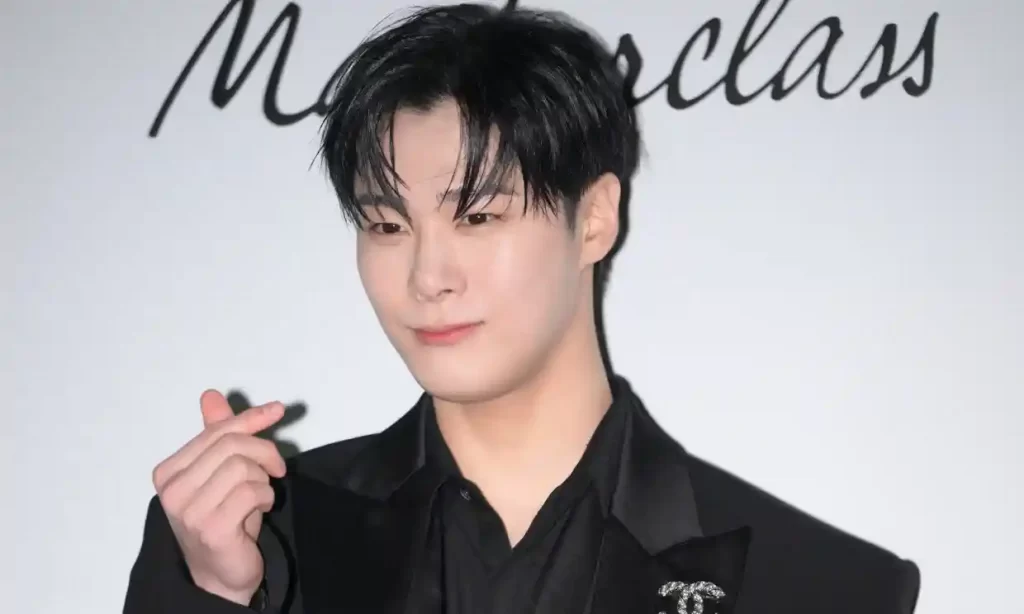K-pop star Moonbin has died at the age of 25, his record label Fantiago announced.
Found unresponsive by his manager in his Seoul apartment, authorities suspect suicide. An autopsy is underway to confirm the cause of death. Fantiago paid tribute to Moonbin, stating he “unexpectedly left our world and became a star in the sky”.
Rising Star in the K-pop World
Moonbin worked as an actor and model before joining the boy band Astro in 2016. In 2020, he formed a duo with fellow Astro member Sanha, and they were in the midst of a world tour.
Moonbin’s sister, Moon Sua, is also a K-pop singer in the girl group Billlie. The siblings had previously discussed their close relationship and mutual support.
K-pop’s Dark Side: Mental Health Struggles
Moonbin’s passing raises concerns about mental health struggles in the K-pop industry. Goo Hara, Sulli, Minwoo, and Jonghyun, other notable members of the K-pop industry, all faced similar tragic ends.
South Korea has the highest youth suicide rate among developed countries. While the overall suicide rate is declining, it is increasing for those in their 20s.
South Korea’s Suicide Rates
South Korea’s suicide rate, as of 2019, stands at 24.6 per 100,000 people, more than double the global average.
In 2020, 13.9% of South Korean teens reported experiencing suicidal thoughts. The government is actively working to reduce the number of suicides and provide support for those in need.
Astro and Its Fans Mourn
Astro’s remaining members are returning to Seoul to attend Moonbin’s wake.
The group’s fans, known as “Arohas,” have been mourning his passing, creating impromptu street memorials and laying flowers in his honour. Moonbin was known as an exceptional dancer and all-round performer.
Emotional Struggles: Moonbin’s Confession
Moonbin had recently opened up about his emotional struggles during a live broadcast on social media. He admitted to feeling bad and apologised to fans for any signs they may have noticed during his last performance.
He also talked about his efforts to improve his mental health, stating, “I chose this job, so I need to be happy so that I can make fans happy as well.”
The Pressure and Expectations in K-pop Industry
K-pop stars face immense pressure to maintain a perfect image, with high expectations from fans, labels, and the public.
This pressure often leads to mental health struggles, including depression, anxiety, and suicidal thoughts.
Government Initiatives to Combat Suicide
The South Korean government has implemented various initiatives to reduce suicide rates. These include increased funding for mental health services, public awareness campaigns, and stricter regulations on online bullying.
However, more work is needed to destigmatise mental health issues and encourage open conversations.
Breaking the Stigma Around Mental Health
In South Korea, mental health issues carry a heavy social stigma. This stigma prevents many from seeking help, exacerbating the problem.
To combat this, South Korea must continue to promote mental health awareness and encourage people to seek help when needed.
Support Networks and Resources
Several organisations in South Korea offer support to those struggling with mental health issues. The Korea Suicide Prevention Centre, the Mental Health Welfare Centre, and the Ministry of Health and Welfare’s Mental Health Division all provide resources for those in need.
Additionally, private organisations and individuals are working to create safe spaces for open conversations around mental health.
Promoting Mental Wellbeing in the K-pop Industry
To protect the wellbeing of K-pop artists, the industry should prioritise mental health and provide resources for artists to cope with the pressures they face.
Record labels, management agencies, and other stakeholders must work together to create an environment where artists feel comfortable discussing their struggles and seeking help.
Encouraging Open Conversations
By fostering open conversations around mental health, both within the K-pop industry and society at large, South Korea can help to normalise discussions of emotional wellbeing.
Encouraging people to share their experiences and seek support can contribute to a more empathetic and understanding society.
The Role of Social Media
Social media can play a significant role in shaping public opinion and breaking the stigma around mental health.
By sharing positive messages and stories of resilience, influencers and public figures can help create a more supportive online environment. Additionally, stricter regulations on online bullying and harassment can help protect vulnerable individuals from potentially harmful interactions.
Remembering Moonbin
As fans and fellow artists mourn the loss of Moonbin, his passing serves as a sobering reminder of the importance of mental health support and open conversations.
By addressing the pressures faced by K-pop stars and promoting mental wellbeing, the industry, and society as a whole can work towards preventing further tragedies.
The tragic death of Moonbin highlights the urgent need to address mental health in South Korea and the K-pop industry. As efforts continue to destigmatise mental health and promote awareness, it is essential to create a supportive environment where individuals feel comfortable discussing their struggles and seeking help.
Image: NS/ImaZins/Getty Images

